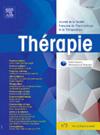Chirurgie bariatrique et médicaments : revue de la littérature et analyse des effets indésirables dans la banque nationale de pharmacovigilance
IF 2.2
4区 医学
Q3 PHARMACOLOGY & PHARMACY
引用次数: 0
Abstract
Introduction
La chirurgie bariatrique est le seul traitement de l’obésité sévère (IMC > 35 kg/m2) actuellement reconnu comme efficace à la fois sur la perte pondérale de façon tangible et durable et l’amélioration, voire la rémission des comorbidités liées à l’obésité, telles que le diabète de type 2, l’hypertension artérielle, et les complications cardiovasculaires. La chirurgie bariatrique, comme toute autre chirurgie du tractus digestif, peut avoir des retentissements sur l’absorption des nutriments mais également des médicaments. Les publications étudiant la prise en charge médicamenteuse des patients opérés concernent essentiellement des cas rapportés ou des études rétrospectives incluant un petit nombre de patients. On ne dispose pas de références officielles.
Méthodes
Nous avons réalisé une recherche des données de la littérature sur les conséquences de la chirurgie bariatrique au niveau de la biodisponibilité et/ou de l’effet du médicament. La base de données Medline® (PubMed) a été interrogée en utilisant les mots clés suivants : « bariatric surgery », « bioavailability », « gastric bypass », et « obesity ». Nous avons complété cette revue par une analyse des notifications d’effets indésirables (EIs) chez les patients en post-chirurgie bariatrique pour obésité enregistrées dans la banque nationale de pharmacovigilance (BNPV). Nous avons sélectionné tous les cas avec la mention chirurgie bariatrique et/ou gastrectomie comme « antécédent ». Après lecture des cas, nous avons exclu les cas où le patient a bénéficié d’une chirurgie pour une autre indication que l’obésité, où la voie d’administration était autre que la voie orale et les cas dont les EIs résultaient de surdosage volontaire, tentative de suicide, d’allergie, du passage au Lévothyrox® nouvelle formule, du méningiome sous progestatif, d’une inefficacité liée à une substitution par un générique et d’une erreur médicamenteuse.
Résultats
La recherche de la littérature a permis d’identifier essentiellement des publications type « case report » sur l’impact de la chirurgie bariatrique sur les médicaments dits à « fenêtre thérapeutique étroite ». L’interrogation de la BNPV a permis d’identifier 66 cas informatifs sur un total de 565 cas sélectionnés (11 %). Néanmoins, les informations ne permettent pas souvent d’établir un lien évident entre la survenue de l’effet indésirable et l’influence de la chirurgie bariatrique.
Conclusion
On note un manque d’informations officielles et/ou recommandations sur la prise des médicaments chez les sujets ayant subi une chirurgie bariatrique. En dehors de la sous-notification, les déclarations des effets indésirables restent peu informatives. Une sensibilisation des professionnels de santé et des patients sur la déclaration des effets indésirables chez cette population s’avère nécessaire sur le plan quantitatif et qualitatif.
Introduction
Bariatric surgery is the only treatment for severe obesity (BMI > 35 kg/m2) currently recognized as effective both in achieving tangible and lasting weight loss, and in improving obesity-related comorbidities such as type 2 diabetes, hypertension, and cardiovascular complications. Bariatric surgery, like any other surgery of the digestive tract, can have an impact on nutrient absorption, as well as on drug absorption. The literature on drug management in bariatric surgery patients concerned mainly of case reports and retrospective studies involving a small number of patients. No official guidelines are available.
Methods
We conducted a literature search on the consequences of bariatric surgery in terms of drug bioavailability and/or effect. The Medline® (PubMed) database was searched using the following keywords: “bariatric surgery”, “bioavailability”, “gastric bypass”, and “obesity”. We completed this review with an analysis of reports of adverse drug reactions (ADRs) in post-bariatric surgery patients for obesity registered in the National pharmacovigilance database (PVDB). We selected all cases with the mention of “bariatric surgery and/or gastrectomy” as “medical history”. After reading the cases, we excluded those in which the patient had undergone surgery for an indication other than obesity, where the route of administration was other than oral, and cases in which ADRs resulted from voluntary overdose, attempted suicide, allergy, switch to Levothyrox® new formulation, meningioma under progestative drugs, inefficacy related to generic substitution and medication error.
Results
The literature search identified mainly “case report” about the impact of bariatric surgery on so-called “narrow therapeutic window” drugs. We identified 66 informative cases out of a total of 565 cases selected (11%) in the PVDB. Nevertheless, the information does not allow a clear relationship between the occurrence of the ADR and the influence of bariatric surgery.
Conclusion
There is a lack of official information and/or recommendations on medication use in subjects who have undergone bariatric surgery. Apart from under-reporting, ADRs reports remain largely uninformative. Health professional and patients would be awareness for improving, quantitatively and qualitatively the reporting of ADRs in this population.
[减肥手术与药物:文献综述和法国国家药物警戒数据库中的药物不良反应分析]。
导言:减肥手术是目前公认的治疗重度肥胖(体重指数大于 35kg/m2)的唯一有效方法,既能达到明显而持久的减肥效果,又能改善与肥胖相关的并发症,如 2 型糖尿病、高血压和心血管并发症。减肥手术与其他消化道手术一样,会影响营养吸收和药物吸收。有关减肥手术患者药物管理的文献主要是涉及少数患者的病例报告和回顾性研究。目前尚无官方指南:我们对减肥手术在药物生物利用度和/或效果方面的影响进行了文献检索。我们使用以下关键词在 Medline® (PubMed) 数据库中进行了搜索:"减肥手术"、"生物利用度"、"胃旁路术 "和 "肥胖症"。最后,我们对国家药物警戒数据库(PVDB)中登记的减肥手术后肥胖症患者的药物不良反应(ADRs)报告进行了分析。我们选择了所有在 "病史 "中提及 "减肥手术和/或胃切除术 "的病例。阅读病例后,我们排除了患者因肥胖以外的适应症而接受手术的病例、给药途径为口服以外的病例,以及因自愿过量、自杀未遂、过敏、改用左旋甲状腺素®新制剂、孕激素药物导致脑膜瘤、非专利药替代品无效和用药错误而导致ADR的病例:文献检索主要发现了减肥手术对所谓 "窄治疗窗 "药物影响的 "病例报告"。在 PVDB 选取的 565 个病例中,我们发现了 66 个有参考价值的病例(占 11%)。尽管如此,这些信息仍无法明确 ADR 的发生与减肥手术的影响之间的关系:结论:目前缺乏关于减肥手术患者用药的官方信息和/或建议。除了报告不足外,ADRs 报告在很大程度上仍然缺乏信息。保健专业人员和患者应从定量和定性两方面提高对这一人群药物不良反应的报告。
本文章由计算机程序翻译,如有差异,请以英文原文为准。
求助全文
约1分钟内获得全文
求助全文
来源期刊

Therapie
医学-药学
CiteScore
3.50
自引率
7.70%
发文量
132
审稿时长
57 days
期刊介绍:
Thérapie is a peer-reviewed journal devoted to Clinical Pharmacology, Therapeutics, Pharmacokinetics, Pharmacovigilance, Addictovigilance, Social Pharmacology, Pharmacoepidemiology, Pharmacoeconomics and Evidence-Based-Medicine. Thérapie publishes in French or in English original articles, general reviews, letters to the editor reporting original findings, correspondence relating to articles or letters published in the Journal, short articles, editorials on up-to-date topics, Pharmacovigilance or Addictovigilance reports that follow the French "guidelines" concerning good practice in pharmacovigilance publications. The journal also publishes thematic issues on topical subject.
The journal is indexed in the main international data bases and notably in: Biosis Previews/Biological Abstracts, Embase/Excerpta Medica, Medline/Index Medicus, Science Citation Index.
 求助内容:
求助内容: 应助结果提醒方式:
应助结果提醒方式:


